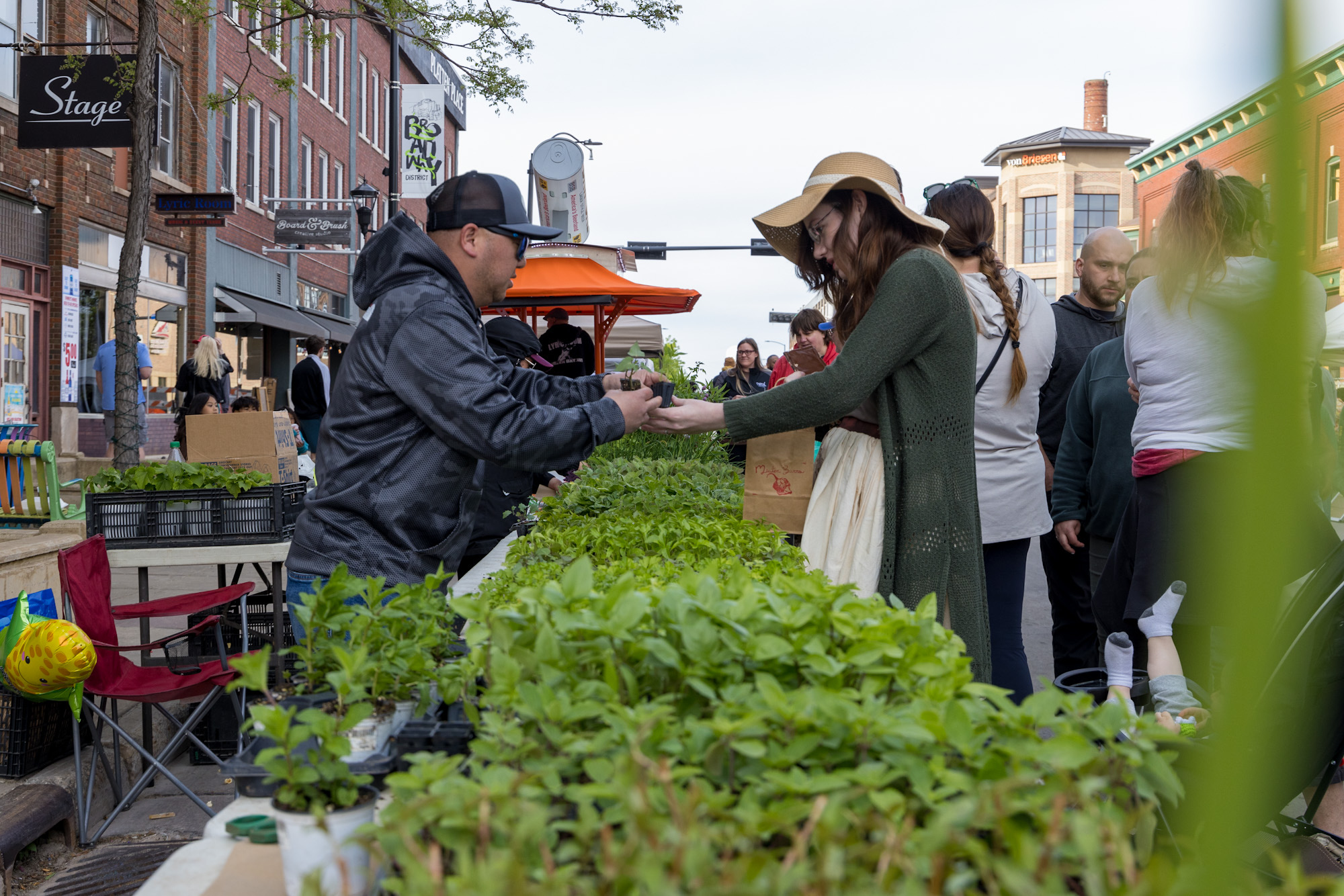Every summer, Midwesterners flock to their local farmers markets, and they should! Not only do farmers markets connect us to the neighbors who grow our food, but they also support our environmental and economic health. Here are just a few reasons why going to the farmers market should be part of your routine this summer.
Food Quality
Most of what you’ll find at your average grocery store isn’t grown within your community. To prepare for the food’s long journey to your home town, fruits and vegetables are picked before they’ve fully ripened to prevent damage and mitigate perishability. Unfortunately, this means that the produce hasn’t reached the height of its vitamin content or flavor.
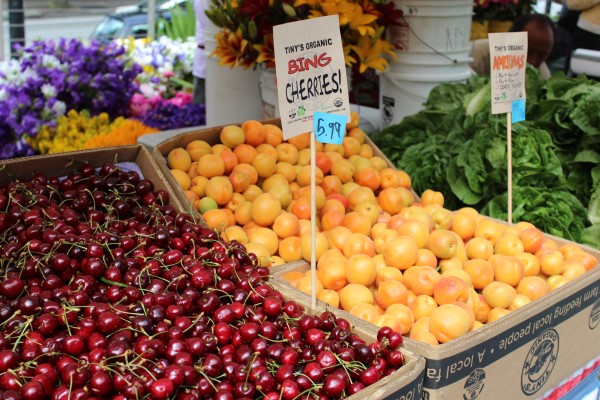
Locally grown food, on the other hand, doesn’t have such a treacherous journey to your countertop. Because of this, farmers are able to harvest it when it is most ripe and nutritious, allowing the produce to shine at its fullest potential.5
Supporting the Local Economy
In 2017, it was found that American farmers make a staggering 17.4 cents for every dollar spent on their product in stores1. With such a small margin, this makes it incredibly hard for small farms to turn a profit. Through farmers markets, they’re able to earn 40-70% more.3
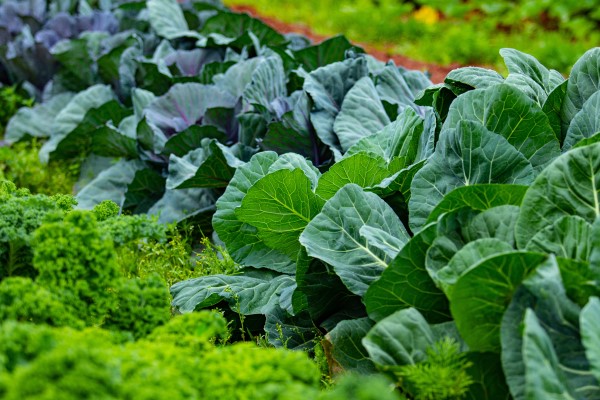

Seasonal Eating for a Better Future
Modern grocery stores have spoiled us. We can get pretty much any fruit or vegetable year-round! While more limited, what’s provided to you at the farmers market is going to be produce that has the ability to grow in the current season.
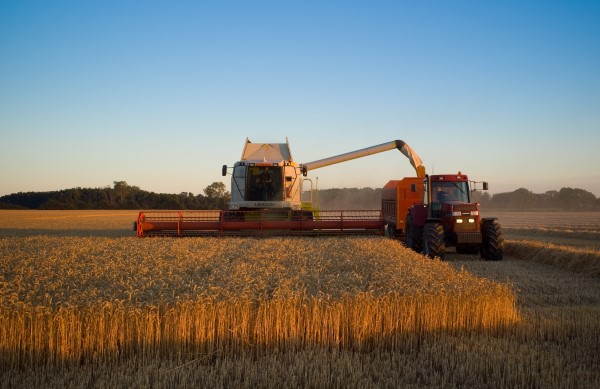

That may not seem like a big deal, but seasonal food actually has a significantly lower carbon footprint. This is because growing foods in undesirable conditions is logistically difficult and requires extra efforts to produce a successful crop.2 Growing fruits and vegetables in season is comparatively low maintenance without the need for additional tillage, excessive watering, or chemical applications.
Plus, eating seasonally encourages trying new things and eating a more varied diet as availability changes!5
Sustainable Farming Practices
A 2015 survey of farmers market vendors found that 81% of farmers practiced composting, implemented cover crops, and reduced tillage for soil health. All of these extra efforts take time and investment, but clearly, they’re committed to the wellbeing of their land.
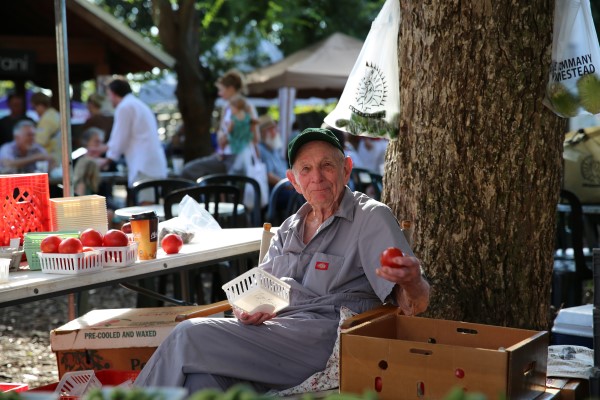

Additionally, many consumers at farmers markets arrive with the expectation that the food they’re buying has been grown in a way that’s more environmentally friendly than at a megafarm. In fact, farmers markets are better attended by both vendors and consumers when organic products are offered. This demand, in turn, drives more small farms to adopt sustainable growing practices.4
There’s So Much More to Learn
I’ve just barely scratched the surface of modern food systems, and while I can be an advocate, it’s not my place to tell the full story. Going to farmers markets brings us face to face with the people growing our food. Engaging with local farmers inevitably leads to a greater understanding, and care for how we can support regional food production.3
The Green Bay area has a wealth of farmers markets to choose from, so you’re bound to find one that fits in your schedule. With a long legacy, the Downtown Green Bay Farmers Market has been around longer than the Packers! Check out this full list of locations across the city.
Sources
- “About Farmers Markets.” Farmers Market Coalition, 1 Sept. 2022, https://farmersmarketcoalition.org/education/qanda/.
- Bell, Eric M, and Arpad Horvath. “Modeling the Carbon Footprint of Fresh Produce: Effects of Transportation, Localness, and Seasonality on US Orange Markets.” Environmental Research Letters, vol. 15, no. 3, 2020, p. 034040., https://doi.org/10.1088/1748-9326/ab6c2f
- Carson, Rachel A., et al. “Buying in: the influence of interactions at farmers’ markets.”Agriculture and Human Values, vol. 33, no. 4, 2016, pp. 861-875. ProQuest, https://www.proquest.com/scholarly-journals/buying-influence-interactions-at-farmers-markets/docview/1837537683/se-2, doi:https://doi.org/10.1007/s10460-015-9675-y.
- “Farmers Markets Promote Sustainability.” Farmers Market Coalition, 1 Sept. 2022, https://farmersmarketcoalition.org/education/farmers-markets-promote-sustainability/.
- Turner, Rachel J, et al. “Buying Locally Grown and Eating Seasonally in Arizona.” UA Campus Repository, Oct. 2014, https://repository.arizona.edu/bitstream/handle/10150/335837/az1641-2014.pdf?sequence=1.


